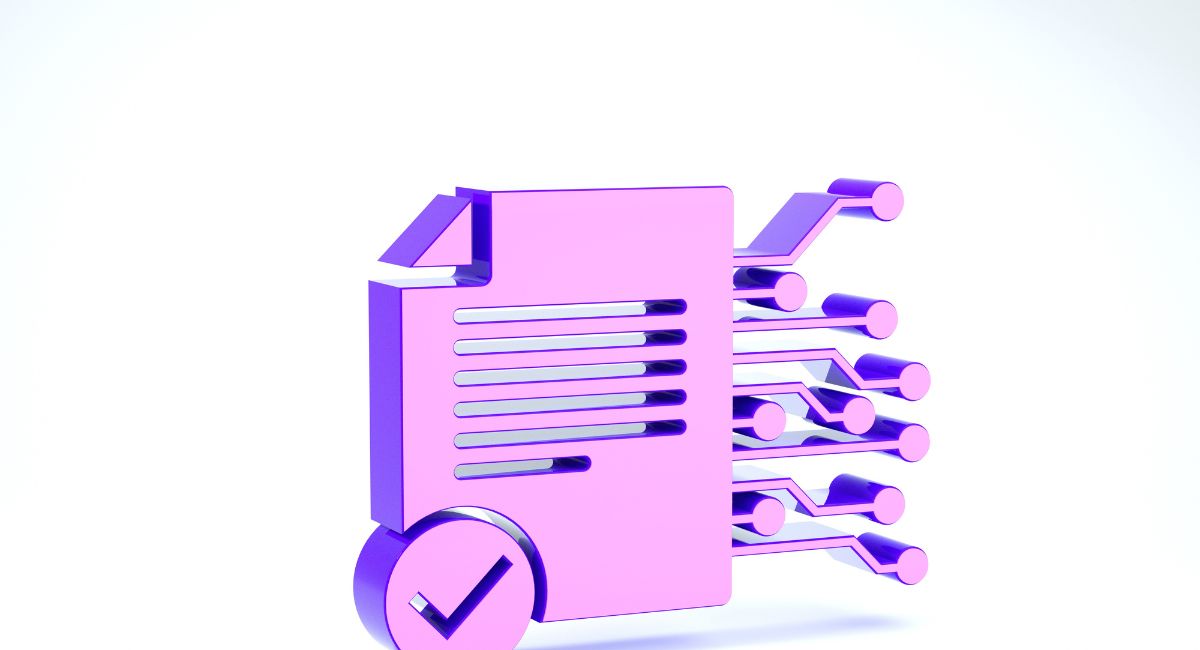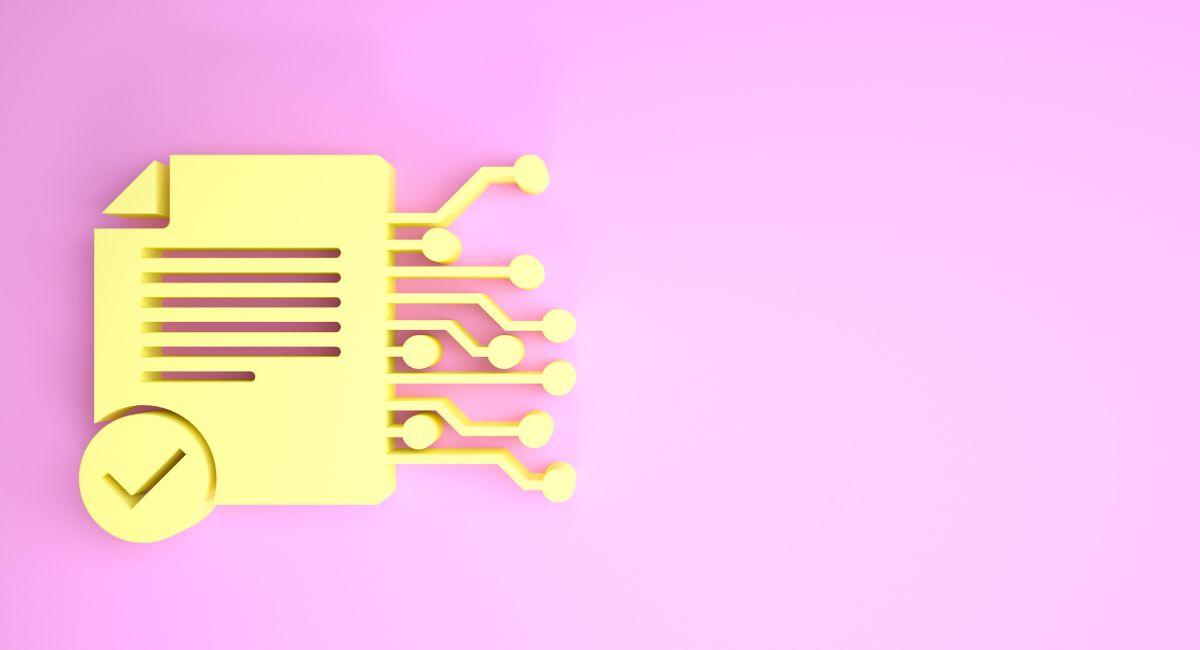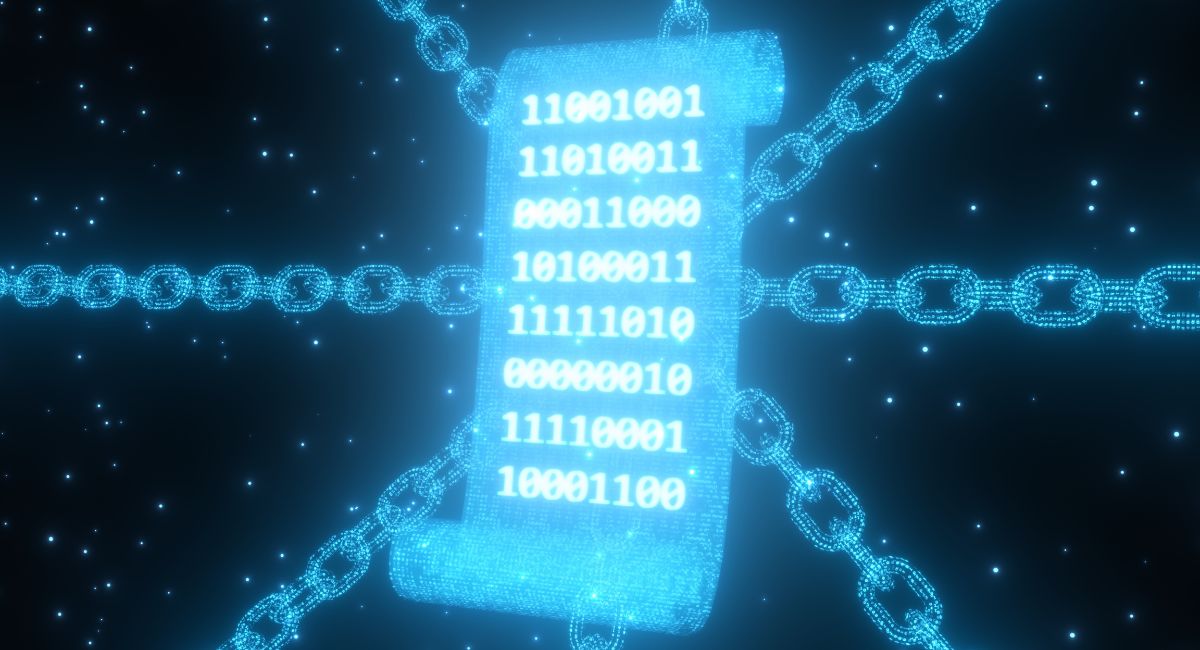Here are some key characteristics and components of smart contracts:
1. Code-Based: Smart contracts are written in programming languages and are translated into bytecode that can be executed on a blockchain. Popular blockchain platforms for smart contracts include Ethereum, Binance Smart Chain, and others.
2. Decentralized Execution: contracts run on a decentralized network of computers (nodes) that validate and execute the code. This decentralization eliminates the need for a central authority, reducing the risk of manipulation or interference.
3. Automation: Smart contracts automatically execute predefined actions when specific conditions are met. This automation eliminates the need for intermediaries and streamlines processes, reducing the potential for errors and delays.
4. Trustless Transactions: The trust in smart contracts is established through the transparency and immutability of blockchain technology. Participants can trust that the code will execute as programmed without the need for an intermediary.
5. Immutable: Once deployed on the blockchain, smart contracts are typically immutable, meaning their code cannot be altered or tampered with. This ensures the integrity of the contract terms over time.
6. Cryptographic Security: Smart contracts leverage cryptographic techniques for security. Transactions are secured using public-key cryptography, and the integrity of the code is maintained through hashing algorithms.
7. Use Cases: Smart contracts have a wide range of applications, including but not limited to decentralized finance (DeFi), supply chain management, voting systems, digital identity verification, and more. Their versatility makes them suitable for various industries and scenarios.
8.Gas Fees: Executing smart contracts on blockchain networks often requires the payment of transaction fees, known as “gas fees.” These fees compensate the network nodes for the computational resources used to execute the contract.
Overall, smart contracts revolutionize traditional contract execution by automating processes, reducing reliance on intermediaries, and providing a more transparent and efficient way to conduct transactions in a decentralized manner. Smart contracts can indeed serve as a method for finalizing disagreements between parties, offering a decentralized and automated alternative to traditional legal systems.
Top 8 ways smart contracts can be used to resolve disagreements:

- Self-Executing Code: Smart contracts are self-executing, meaning they automatically enforce the terms written into their code. When predefined conditions are met, the contract executes without the need for external intervention. This ensures swift and automatic resolution without relying on a legal authority.
- Immutable and Tamper-Proof: Once deployed on a blockchain, smart contracts become immutable and tamper-proof. This feature ensures that the agreed-upon terms cannot be altered unilaterally by any party, providing a transparent and secure record of the agreement.
- Decentralized Trust: By leveraging blockchain technology, smart contracts operate on a decentralized network of nodes. This eliminates the need for trust in a central authority, as the consensus mechanism ensures the integrity and validity of the contract. Parties can transact directly without relying on intermediaries.
- Oracles for Real-World Data: Smart contracts can utilize oracles to gather real-world data, such as stock prices or weather conditions, to trigger or settle contract terms. This allows smart contracts to handle a wide range of scenarios beyond purely digital interactions, expanding their applicability to real-world disputes.
- Escrow Services: Smart contracts can act as automated escrow services. When both parties fulfill their obligations, the contract releases funds or assets accordingly. If a dispute arises, the contract can incorporate predefined resolution mechanisms, such as arbitration or voting among involved parties.
- Arbitration Mechanisms: Smart contracts can integrate decentralized arbitration mechanisms, allowing parties to designate neutral third parties or even employ decentralized autonomous organizations (DAOs) to arbitrate disputes. This provides a fair and impartial resolution process without the need for a centralized legal system.
- Conditional Payments: Conditional payments within smart contracts enable the implementation of “if-then” scenarios. If specific conditions are met, payments are executed; otherwise, funds remain locked until the dispute is resolved or predetermined conditions are satisfied.
- Multi-Signature Wallets: Multi-signature wallets, facilitated by smart contracts, require multiple parties to sign off on a transaction. This can be utilized in situations where consensus is needed, acting as a built-in safeguard against unilateral actions and minimizing the risk of fraud or disagreements.
Also, read- Top Blockchain Platforms To Use For Different Types Of Blockchain Projects
How do you resolve disputes in smart contracts?
Resolving disputes in smart contracts is a crucial aspect of ensuring the effectiveness and reliability of decentralized systems. contracts, being self-executing and immutable, require innovative mechanisms to address disputes. Here are several approaches to resolving disputes in smart contracts:
- Smart Contract Design:
- Escrow Mechanisms: Implementing an escrow system in the smart contract can hold funds until certain conditions are met, providing security and reducing the likelihood of disputes.
- Multi-Signature Wallets: Requiring multiple parties to sign off on transactions can add an extra layer of security and prevent unilateral actions.
- Oracles:
- External Data Verification: Oracles are third-party services that provide external information to smart contracts. They can be used to verify real-world events, such as delivery confirmation or market prices, helping to resolve disputes based on external data.
- Arbitration:
- Decentralized Arbitration Platforms: Utilizing decentralized arbitration platforms allows parties to select arbitrators who can review evidence and make decisions. This can add a human element to dispute resolution.
- Arbitration Clauses: Including arbitration clauses in smart contracts can stipulate the process for dispute resolution, providing a predetermined mechanism for addressing conflicts.
- Governance Models:
- Token Holder Voting: In decentralized autonomous organizations (DAOs), token holders may vote on proposed resolutions, ensuring a more democratic approach to dispute resolution.
- Governance Proposals: Implementing a governance layer where participants can propose and vote on changes to the contract can address disputes through community consensus.
- Code Upgradability:
- Upgradeable Contracts: Designing smart contracts with upgradability features allows developers to fix bugs or address unforeseen issues without disrupting the entire system. This can be crucial for resolving disputes caused by vulnerabilities in the code.
- Legal Framework Integration:
- Legal Agreements: Combining contracts with traditional legal agreements can offer a hybrid approach, where legal recourse can be sought in case of disputes that cannot be resolved through the smart contract alone.
- Reputation Systems:
- Reputation Scores: Incorporating reputation systems for participants in the contract ecosystem can act as a deterrent for fraudulent activities and incentivize fair behavior.
- Immutable Audit Trails:
- Transparent Logs: Maintaining transparent and immutable logs of all interactions within the smart contract can provide a clear audit trail, aiding in the resolution of disputes by offering a comprehensive history of events.
It’s important to note that the effectiveness of these mechanisms depends on the specific use case, the nature of the contract, and the preferences of the involved parties. contract developers often need to carefully consider these factors when implementing dispute resolution mechanisms.
How risky are smart contracts?

Smart contracts, while powerful and innovative, come with their own set of risks. Understanding these risks is crucial for developers, users, and stakeholders in the blockchain ecosystem. Here are some key factors contributing to the risk associated with smart contracts:
- Code Vulnerabilities:
- Bugs and Exploits: Smart contracts are executed as programmed, and any bugs or vulnerabilities in the code can lead to unintended consequences, including exploitation by malicious actors.
- Immutability:
- Inability to Modify Contracts: Once deployed on a blockchain, smart contracts are typically immutable, meaning their code cannot be changed. If vulnerabilities are discovered after deployment, it may be challenging to rectify them.
- Oracle Risks:
- Reliance on External Data: Smart contracts often require external information (oracles) to make decisions. If the oracle data is manipulated or inaccurate, it can compromise the integrity of the smart contract.
- Regulatory Uncertainty:
- Legal and Regulatory Compliance: The legal status and regulatory environment for smart contracts can vary across jurisdictions. Uncertainty in regulatory compliance may pose risks for users and developers.
- User Errors:
- Misinterpretation of Code: Users interacting with smart contracts may misinterpret or misunderstand the contract’s functionality, leading to unintentional errors or loss of funds.
- Gas Fees and Scalability:
- Transaction Costs: Gas fees associated with executing smart contracts on certain blockchains can be volatile. Users may face unexpected costs, especially during periods of network congestion. Scalability issues can also impact the efficiency and cost-effectiveness of smart contracts.
- Security of Development Tools:
- Tooling Risks: The tools used to develop and deploy contracts must be secure. Compromised development environments or poorly implemented tools can introduce vulnerabilities into the smart contract.
- Centralized Points of Failure:
- Dependency on Centralized Services: Some contracts may rely on centralized services, defeating the purpose of decentralization. The failure of these central points can impact the overall functionality of the smart contract.
- Lack of Standardization:
- Interoperability Challenges: Lack of standardization in contract development may lead to interoperability challenges, making it difficult for contracts on different platforms to interact seamlessly.
- Community Adoption and Governance:
- Governance Risks: Decentralized autonomous organizations (DAOs) and other governance models may face challenges in achieving widespread community adoption and effective decision-making.
To mitigate these risks, it is essential to conduct thorough code audits, implement best practices in smart contract development, and stay informed about the evolving landscape of blockchain technology. Additionally, developers and users should exercise caution, employ security best practices, and consider risk mitigation strategies when interacting with or deploying smart contracts.
Are smart contracts hackable?
Smart contracts are susceptible to security vulnerabilities, and in some cases, they can be exploited by attackers. The decentralized and transparent nature of blockchain doesn’t make smart contracts immune to hacking; rather, it introduces a unique set of challenges. Here are some factors that contribute to the potential hackability of smart contracts:
- Code Vulnerabilities:
- Programming Errors: Bugs, logical flaws, or vulnerabilities in the contract code can be exploited by attackers. These issues may include reentrancy attacks, integer overflow/underflow, or other common programming errors.
- Immutable Code:
- Inability to Update: Once deployed on the blockchain, smart contracts are typically immutable, meaning their code cannot be changed. If vulnerabilities are discovered after deployment, they may persist, making it challenging to patch or update the code.
- Dependence on External Data:
- Oracle Exploitation: contracts relying on external data through oracles are vulnerable if the oracle source is compromised or manipulated. Attackers can feed false information to the smart contract, leading to undesirable outcomes.
- Economic Incentives:
- Financial Motivations: contracts that handle significant financial transactions may become targets for attackers seeking to exploit vulnerabilities for financial gain.
- Gas Fee Manipulation:
- Transaction Manipulation: Attackers may attempt to manipulate gas fees or congest the network to exploit vulnerabilities in the contract during periods of network congestion.
- Insufficient Testing:
- Lack of Rigorous Testing: Inadequate testing and auditing of smart contract code can leave vulnerabilities undetected. Thorough testing and code audits are essential to identify and address potential security flaws.
- Social Engineering:
- Phishing Attacks: Users interacting with contracts may fall victim to phishing attacks, leading them to unintentionally interact with malicious contracts or websites.
- Governance and Upgradability Risks:
- Governance Exploitation: Smart contracts governed by decentralized autonomous organizations (DAOs) may face governance-related risks, such as manipulation of voting mechanisms.
To enhance the security of smart contracts, developers and users can take several precautions:
- Code Audits: Regular and thorough code audits by security experts can help identify and fix vulnerabilities.
- Best Practices: Adhering to best practices in smart contract development, such as using secure coding patterns and libraries, can reduce the risk of vulnerabilities.
- Limit Dependencies: Minimizing reliance on external data sources and third-party services can reduce potential attack surfaces.
- User Education: Educating users about the risks associated with interacting with smart contracts can help prevent social engineering attacks.
While it’s not possible to eliminate all risks, taking these precautions can significantly reduce the likelihood of smart contract vulnerabilities and enhance the overall security of blockchain-based applications.
Conclusion
In conclusion, leveraging contracts as a method for finalizing disagreements introduces a transformative paradigm in dispute resolution, offering efficiency, transparency, and security. The top eight ways highlighted underscore the versatility and robustness of smart contracts in streamlining and enhancing traditional dispute resolution mechanisms.
By incorporating code-based automation, smart contracts significantly reduce the need for intermediaries and the associated delays in resolving disputes. The decentralized execution on blockchain networks ensures a trustless environment, where the terms of the contract are autonomously enforced without relying on a central authority.
The cryptographic security embedded in smart contracts enhances the integrity and confidentiality of the dispute resolution process. Participants can rely on the immutability of blockchain technology to guarantee that the agreed-upon terms are executed as programmed, fostering a level of trust that is paramount in dispute resolution.
The diverse range of use cases, from decentralized finance to supply chain management, showcases the adaptability of smart contracts in addressing disagreements across various industries. This adaptability extends the applicability of smart contracts beyond traditional contractual agreements, opening new avenues for innovative and efficient dispute-resolution methods.
However, it is crucial to acknowledge the consideration of gas fees associated with executing contracts, as these fees may impact the cost-effectiveness of utilizing this method for dispute resolution. Additionally, the immutable nature of smart contracts necessitates careful planning and precision in drafting the initial contract terms to avoid unintended consequences in case of disputes.
In essence, treating smart contracts as a method for finalizing disagreements represents a powerful evolution in how we approach dispute resolution. This technology not only enhances the speed and accuracy of resolution but also promotes a decentralized, transparent, and trustless environment, redefining the future landscape of contractual engagements and conflict resolution.


 Bitcoin
Bitcoin  Ethereum
Ethereum  Tether
Tether  XRP
XRP  Solana
Solana  Dogecoin
Dogecoin  USDC
USDC  Lido Staked Ether
Lido Staked Ether  Cardano
Cardano  TRON
TRON  Avalanche
Avalanche  Chainlink
Chainlink  Wrapped stETH
Wrapped stETH  Toncoin
Toncoin  Sui
Sui  Wrapped Bitcoin
Wrapped Bitcoin  Shiba Inu
Shiba Inu  Hyperliquid
Hyperliquid  Stellar
Stellar  Polkadot
Polkadot  Hedera
Hedera  WETH
WETH  Bitcoin Cash
Bitcoin Cash  LEO Token
LEO Token  Uniswap
Uniswap  Litecoin
Litecoin  Pepe
Pepe  Wrapped eETH
Wrapped eETH  NEAR Protocol
NEAR Protocol  Ethena USDe
Ethena USDe  Aptos
Aptos  USDS
USDS  Internet Computer
Internet Computer  Aave
Aave  Cronos
Cronos  POL (ex-MATIC)
POL (ex-MATIC)  Mantle
Mantle  Ethereum Classic
Ethereum Classic  Render
Render  MANTRA
MANTRA  Monero
Monero  WhiteBIT Coin
WhiteBIT Coin  Bittensor
Bittensor  Dai
Dai  Artificial Superintelligence Alliance
Artificial Superintelligence Alliance  Ethena
Ethena  Arbitrum
Arbitrum 






